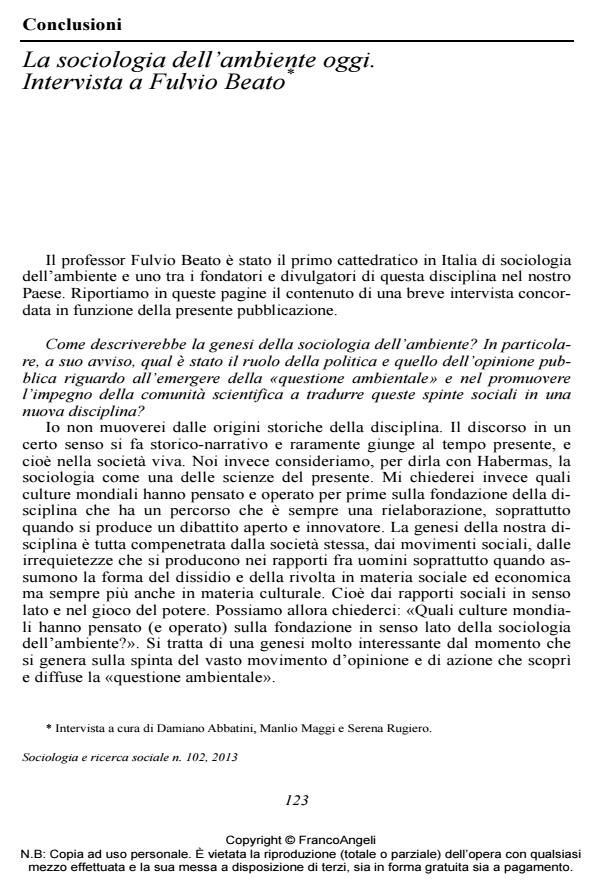Environmental Sociology Today: Interview with Fulvio Beato
Journal title SOCIOLOGIA E RICERCA SOCIALE
Author/s Fulvio Beato
Publishing Year 2014 Issue 2013/102
Language Italian Pages 7 P. 123-129 File size 476 KB
DOI 10.3280/SR2013-102010
DOI is like a bar code for intellectual property: to have more infomation
click here
Below, you can see the article first page
If you want to buy this article in PDF format, you can do it, following the instructions to buy download credits

FrancoAngeli is member of Publishers International Linking Association, Inc (PILA), a not-for-profit association which run the CrossRef service enabling links to and from online scholarly content.
In this interview, Fulvio Beato talks about the state and prospects of environmental sociology. He places the beginning of the environmental focus in the Anglo-Saxon culture of the 60s and 70s, which lead to a consequent need of a new sociological specialization in order to understand the deep links between environment and social systems. Today, the environment is a subject recognized by different aspects of cultural and scientific areas and plays an important role in economies and in public policies in both advanced societies and newly industrialized ones. Knowledge and competency in environmental sociology offers a valuable contribution to better understand and handle these dynamics
Fulvio Beato, La sociologia dell’ambiente oggi. Intervista a Fulvio Beato in "SOCIOLOGIA E RICERCA SOCIALE " 102/2013, pp 123-129, DOI: 10.3280/SR2013-102010